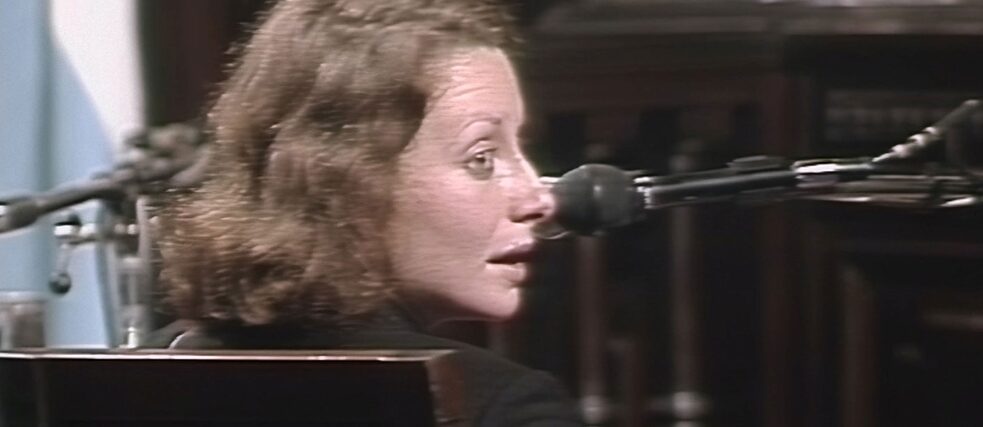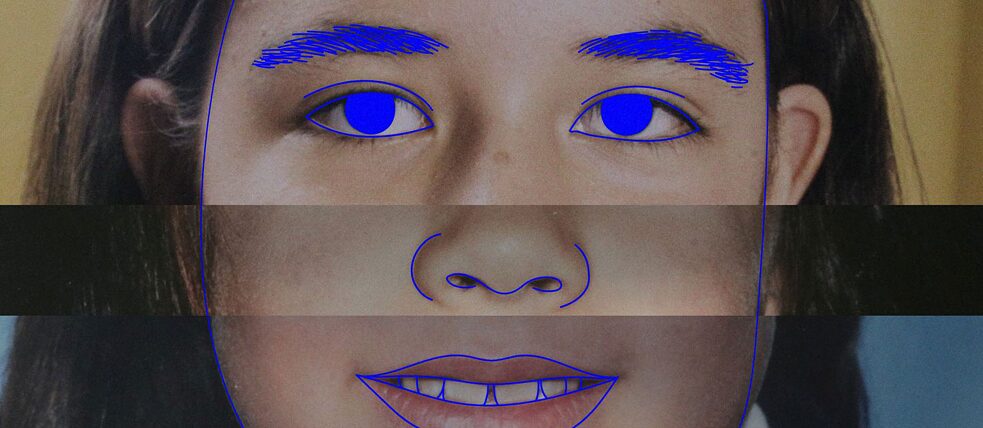The Argentinian films in this year’s Berlinale tell a wide range of documentary and fictional stories, testifying to the variety and vitality of present-day Argentine cinema.
The Trial (El juicio), a nearly three-hour documentary by Ulises de la Orden, is about the 1985 Trial of the Juntas, in which members of the Argentine military dictatorship (1976–1983) were tried for crimes against humanity, torture and “forced disappearances” of people during this time. The film is a thematically arranged condensation of no less than 530 hours of video footage from the courtroom shot by Argentine television. The material is available to the public in the archives of Memoria Abierta, an alliance of Argentine human rights organizations committed to preserving the memory of the reign of terror and subsequent trials. “El Juico“ (The trial), argentine-italian-french-norwegian co-production, 2023. Director: Ulises de la Orden. In the picture the witness Myriam Lewin
| Foto (Detail): © Memoria Abierta
The film presents straightforward and sometimes horrifically detailed testimony by torture victims as well as parents of the politically persecuted and “disappeared”. But it also includes some of the sarcastic reactions and rhetoric used by the accused. It’s a long film, but the director’s painstaking editing succeeds in exposing the atrocities committed by the Argentine dictatorship as well as its ties to like-minded Latin American regimes, e.g. in Uruguay and Brazil.
“El Juico“ (The trial), argentine-italian-french-norwegian co-production, 2023. Director: Ulises de la Orden. In the picture the witness Myriam Lewin
| Foto (Detail): © Memoria Abierta
The film presents straightforward and sometimes horrifically detailed testimony by torture victims as well as parents of the politically persecuted and “disappeared”. But it also includes some of the sarcastic reactions and rhetoric used by the accused. It’s a long film, but the director’s painstaking editing succeeds in exposing the atrocities committed by the Argentine dictatorship as well as its ties to like-minded Latin American regimes, e.g. in Uruguay and Brazil.El juicio is an overpowering film that leaves you no choice but full immersion. “Never again!”, the motto against the Argentine dictatorship, seems all too topical these days as far right forces stage a comeback, gaining ground and power in various countries around the world.
Daily chronicles
Much lighter in tone and set in democratic pre-pandemic Argentina, About Thirty (Arturo a los 30) is about the day-to-day vicissitudes of a directionless thirty-year-old who’s having a hard time finding his feet in adult life. Despite his age, Arturo can’t manage to support himself and break away from his parents – a widespread predicament among young adults in Argentina.The film makes use of drawings, written documents and theatre scenes to tell the protagonist’s tale – which is set within the frame story of his ex-best friend’s wedding – as well as voiceover excerpts from the diary he keeps in order to give some structure to his life. Arturo is confronted with people from his recent past as well as painful memories he has tried to forget, including his brother’s early death, his conflictual relationship to his sister, and an ex-boyfriend he’s still in love with.
Change of face, change of pace
Melisa Liebenthal’s fairy tale The Face of the Jellyfish (El rosto de la medusa) likewise opts for an everyday tone. But when the protagonist’s face changes overnight, even her own mother doesn’t recognize her anymore and she is denied a new ID card. Neither doctors nor alternative therapies can remedy the situation. “El rosto de la medusa“ (The face of the jellyfish), Argentinien 2022. Director: Melisa Liebenthal
| Photo (detail) © Gentil Cine SRL and Zona Audiovisual
So she moves back in with her parents, leafs through family albums and compares her new features to the faces of animals at the zoo – which gives the film a touch of the experimental and the absurd. But the story is about more than the change in Marina’s physiognomy: Her new face gives her a brand new identity and a new lease of life, which she now wants to hold onto for good.
“El rosto de la medusa“ (The face of the jellyfish), Argentinien 2022. Director: Melisa Liebenthal
| Photo (detail) © Gentil Cine SRL and Zona Audiovisual
So she moves back in with her parents, leafs through family albums and compares her new features to the faces of animals at the zoo – which gives the film a touch of the experimental and the absurd. But the story is about more than the change in Marina’s physiognomy: Her new face gives her a brand new identity and a new lease of life, which she now wants to hold onto for good.February 2023
